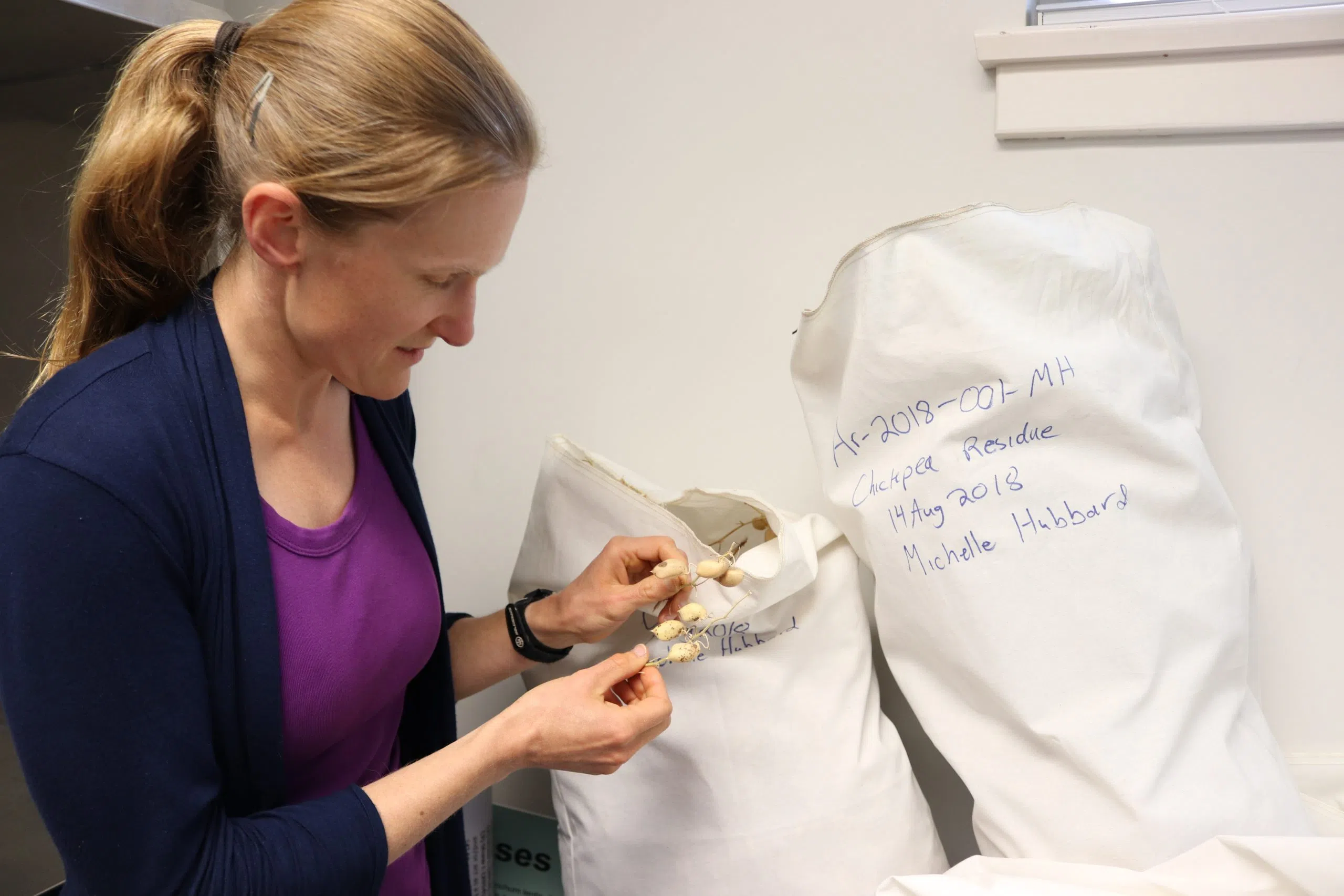
Saskatchewan researcher hopes to slow down pulse crop killer
A Saskatchewan research scientist believes she has found a way to help slow down a well know pulse crop killer.
Dr. Michelle Hubbard, who works at Agriculture Canada’s Swift Current research centre, has been studying the benefits of intercropping. Intercropping is the practice of growing two or more crops together in the same place, at the same time.
In her research, Hubbard grew chick peas and flax together and learned the combination sped up chick pea maturation and a reduction damage from diseases including Ascochyta Blight.
“Chick peas have another limitation in that if there’s no drought to induce stress at the end of the season, chick peas just won’t ripen and continues to grow indeterminately but flax might be able to induce that drought and then reduce green seed and make it easier to harvest chick peas,” she said.


